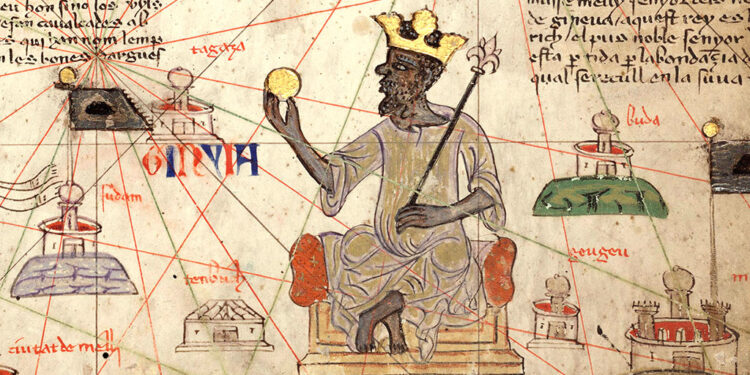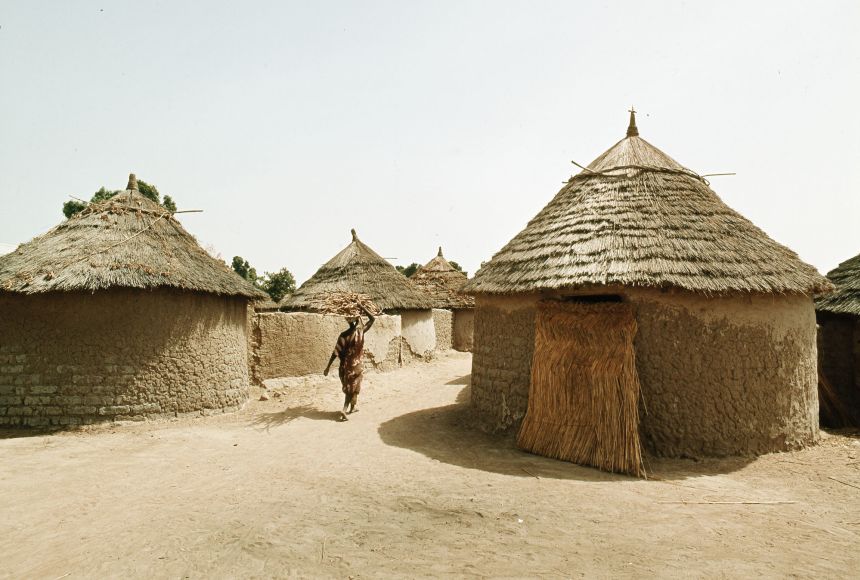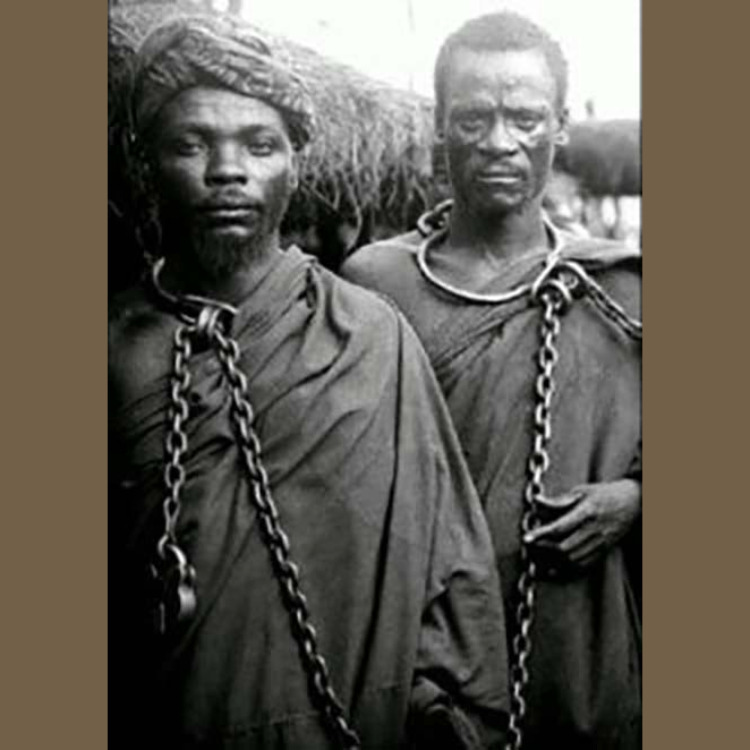Sankofa and its Meaning
The Sankofa symbol, a bird with its mythical origin from the Akan people of Ghana, is a symbol of reflection of past experiences to guide the future. The bird looks backward into the past to build the future and thereby create a balance. In essence, it is a reminder for people to tap into the wisdom of their ancestors and gain deeper understanding of the world through self-reflection.
The Sankofa symbol reminds the African that looking back and learning from the past is essential for moving forward. Understanding the past is crucial for making better future decisions. Self-reflection as an ongoing process helps to fuel personal growth. One can tap into inner wisdom and make more informed decisions that align with values and goals.
History vs Culture definitions
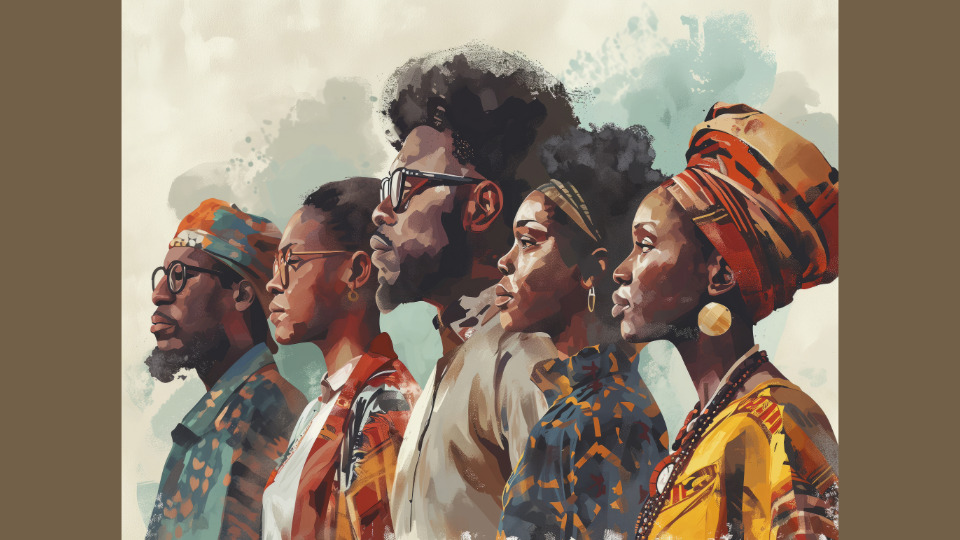
sankofa-culture
Any disruption history or culture can profoundly reshape a people's identity, memory, and future.
History is the study of past events that have shaped human societies over time. It tells how people, their beliefs and world views, how they governed, created, struggled, and intermingled in their societies. History helps future generations to understand change, continuity, and the forces that influence the present and the future.
Culture is a “collective way of acting, thinking, and feeling… the collective programming of the mind that distinguishes the members of one group or category of people from others.” (Onukwuba and Amah, 2023). History and culture are deeply interelated because culture is shaped by history, and customs often emerge from historical experiences. History is preserved through culture, and any disruption of either concept can profoundly reshape a people’s identity, memory, and future.
Disruption of History/Culture & Its Effect on The African Youth Today

sankofa-youth
African youth across the continent experience economic inequality, racial tension, and identity confusion.
Disruptions in the historical experiences of a society often force people to abandon or suppress their cultural practices, and this can result in language extintion of the people, loss of spiritual beliefs and practices, and assimilation into unfamiliar cultures. Such occurences leave deep psychological scars in the minds of a people. For instance, generational trauma may affect mental health, trust, and social cohesion. Many African youths experience chronic stress and anxiety linked to inherited trauma from colonialism, apartheid, genocide, and systemic poverty. (https://www.thelancet.com/journals/lanpsy/article/PIIS2215-0366(21).
These conditions often go untreated due to stigma and lack of access to mental health care. African youth across the continent experience economic inequality, racial tension, and identity confusion due to this alienation and experiences. (https://www.unicef.org/esa/reports/mental-health-and-psychosocial-wellbeing-adolescents-africa
Sankofa: Reflection and Retrieval
Precolonial African kingdoms were independent and sovereign of each other, with leaders who reigned over their domains with integrity based on their cultures and aimed to preserve their kingdoms and their citizens against external aggression. The leaders were committed to empire building, development, rule of law, equity, and fairness for all (Awortu & Michael,2018). Today, leadership is categorized as one of the banes of Africa underdevelopment (Aditya Narayan Misra & Abhishek K. Singh. Vol. XXIV April & October 2022 Nos. 1 & 2 ISSN: 0971-5320). The authors link faulty leadership to poverty, inequality, and the lack of democratic accountability, asserting that leadership is central to Africa’s development crisis.
Awortu and Michael highlighted two visionary leaders, Mansa Keita Sundiata (c.1214-c.1255) and Mansa Musa, (c.1280-c.1337) who contributed through their selfless service to the growth and development of the Mali Empire. These leaders made significant impact that, in the spirit of Sankofa, could serve as lessons for modern African states. Ancient African kingdoms and governance structures were not primitive, rather they were sophisticated, spiritually grounded, and community driven. Authority was earned through wisdom and service. Justice was guided through oral traditions, ancestral wisdom, and community norms.
In most Pre-colonial African kingdoms, leadership was collective and decisions were made through dialogue and consensus. Leadrship was characterized by commitment, dedication, passion, equity, fairness, selflessness, rule of law, abhorrence of corruption amongst others. For instance, the Igbos of Nigeria were governed by councils of elders and age grade systems. The system enforced checks and balances via age grades and assemblies. It fostered a participatory and egalitarian political culture. There was no centralized king or ruler. (Ogugbuaja, E. et al., 2024).
European colonizers in the African continent, introduced individualism, greed, corruption, exploitation, ethnic discrimination, marginalization, uneven development and above all class distinction and struggle became instilled in the African society. These concepts of discrimination were alien to the African culture, and therefore deviates from the collective way of acting, thinking, and feeling of the African mindset. European powers used the alien system to incorporate African leaders to the administration of the colonial states, and disrupted traditional governance structures (Awortu & Michael,2018). A structure of leadership that aimed to protect its citizens became anti-people, selfish, and exploitative.
Introspection and mindfulness are key aspects of Sankofa, fostering mental clarity, emotional healing and a deeper understanding of oneself and the world. Cultural preservation is crucial in understanding the identity and the values that shape a community or society. Precolonial African empires had leaders that ruled with integrity and cultural preservation that accelerated the growth of their kingdoms.
Mansa Musa and Mansa Sundiata both of the Mali Empire are cultural icons whose governance structure and leadership styles are worthy of emulation by modern African leaders. African leaders must acknowledge and address the lingering effects of colonial exploitation, mental slavery, and systemic injustice that have plagued the continent for centuries through the promotion of educational curricula that teach Africa’s true history, resilience, and contributions to global civilization. Mansa Musa’s transformation of Timbuktu into a center of learning laid the groundwork for West Africa’s intellectual tradition. Today, universities like the University of Sankore in Mali trace their roots to his patronage. Mansa Musa is considered one of the richest individuals in human history, renowned not only for his immense wealth but also for his visionary leadership during the 14th century in the Mali Empire. His legendary pilgrimage to Mecca in 1324 showcased the empire’s prosperity and elevated its global reputation.
Mansa Sundiata emphasized equitable laws by which all citizens must abide and which helped sustain peace, equity and justice (Awortu & Michael,2018). Defaulters were punished according to offences committed irrespective of their class or status in the community, thus promoted peaceful coexistence among its citizens. Mansa Sundiata established a corruption free society, by leading an exemplary lifestyle anchored on contentment and devoid of greed. His military was outstanding, disciplined, and well equipped. This virtue is lacking in the leadership of most modern African countries. Injustice, corruption and greed are the order of the day across the African continent. African leaders must emulate Mansa Sundiata and Mansa Musa.
Modern African leaders should abhor corruption, ethnicity, greed, marginalization, class struggle, nepotism, religious bigotries, and exploitation of the weak by the strong, inequality, and abuse of the rule of law. They should embrace unity, peace, equity and fairness, rule of law amongst others. Strict adherence to the above will lead to unimaginable sustainable development of the continent.
Historical preservation is an essential aspect of Sankofa concept, as it involves learning from the past and carrying those lessons into the future. This can involve studying the traditions and customs of the ancestors, as well as preserving cultural artifacts and stories. By so doing, one can attain deeper understanding of the past and build the future. Mansa Musa embraced the multicultural nature of his empire by encouraging trade and cultural exchange. African nations can showcase their cultural richness to the rest of the world. Africa’s system of governance is essentially rooted in indigenous wisdom, which offers resilience, inclusivity, and moral clarity. Modern governments can learn from this and build stronger structures.
Mansa Musa invested in education and knowledge that spread beyond the African continent. He built schools, libraries, and universities. Modern leaders can emulate this by promoting quality education and foster intellectual hubs that drive innovation and development. Mansa Musa was generous with his personal wealth and ensured that social welfare was created for the people. Modern African governments can do the same by ensuring that national wealth benefits citizens through healthcare, housing, and public services. Mansa Musa ruled with a sense of justice, fairness and service, using power to uplift his people. Modern leaders in African nations lack transparency, accountability, and long-term vision for prosperity of the citizens because many leaders on the modern African continent are in power to enrich themselves at the detriment of the citizens. Narayan Misra & Singh (2022) noted that African leaders do not represent the interests of ordinary people but rather the interests of the capitalist class, which has always dominated the system. They pointed out the lack of ethical values and accountability among African leaders.
The youth of Africa must look back and rebuild the continent. The African youth must unite and challenge colonial narratives to decolnize African identity and rewrite history from African perspectives. Educate the young through digital media about the history and the legacies of great minds like Mansa Musa and Mansa Sundiata. They must reclaim indigenous economic models like cooperative farming, trade guilds, and communal land ownership. Use modern technologies to revive African aesthetics and secure a place in the global economy. Create Pan-African networks and introduce transformational leadership styles with emphasis on ethics and accountability.
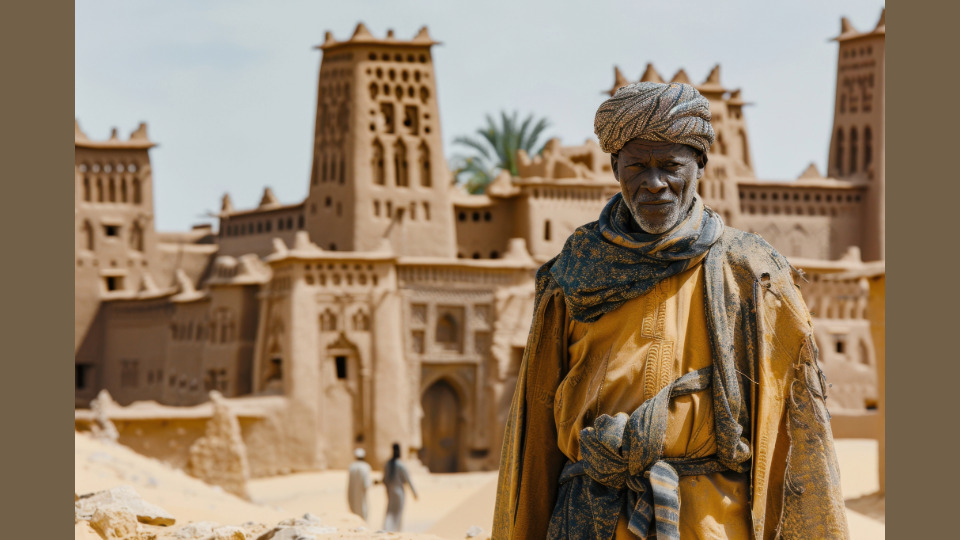
Timbuktu
Founded in 12th century.
References
Aditya Narayan Misra & Abhishek K. Singh (2022). Poor Leadership and Underdevelopment in the African Subcontinent: An Evaluation of Selected Factors. International Journal of African Studies Vol. XXIV April & October 2022 Nos. 1 & 2 ISSN: 0971-5320
Ahmed, I. Y., Umaru, C., & Yusuf, R. (2022). An analysis of the effects of colonialism in Africa. International Journal of Advanced Academic Research, 8(6), 1–10. https://www.ijaar.org/articles/v8n6/sms/ijaar868.pdf
Awortu, B. E., & Michael, T. B. (2018). Leadership in pre-colonial Africa: A case study of Sundiata Keita (Mari Jata) c. 1217–1255 and Mansa Musa Keita (Kankan) c. 1312–1337 of Mali. International Journal of Novel Research in Humanity and Social Sciences, 5(1), 1–10. https://www.noveltyjournals.com/upload/paper/Leadership%20in%20Pre-Colonial%20Africa-1260.pdf
Ogugbuaja, E., Nworie, V., Mustapha, H., Willies, N. (2024). The Pre-Colonial Traditional Governance Structures in Igboland: A Framework for Effecting Efficacy, Representation, and Accountability of Modern Public Administration in Nigeria. Journal of Humanities and Social Policy E-ISSN 2545-5729 P-ISSN 2695 2416. Vol 10. No.4 2024 www.iiardjournals.org Online Version.
Onukwuba, H. U., & Amah, E. (2023). Leadership and underdevelopment in Africa: A critical analysis. International Journal of Social Sciences and Management Review, 6(1), 45–58. https://www.ijssmr.org/uploads2023/ijssmr06_01.pdf
latest video

nia via inbox
Stay connected. Subscribe and get updated on what's new with Nia!


